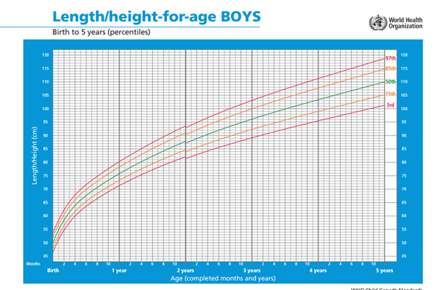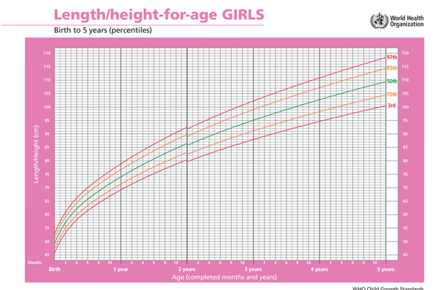Like what you see?
Sign up to receive more free parenting advice.
Thank you for subscribing to our newsletter!
Child Development

Credit: PeopleImages
A common experience parents may face in the early years is their child becoming a picky eater.
While there is no universal definition for picky eaters, Leanne Elliston, Accredited Practising Dietitian at Nutrition Australia ACT , suggests that the term refers to someone who exhibits restrictive or selective behaviour around certain foods.
She also explains neophobia, which is a fear and refusal of unfamiliar or new foods.
Picky eating increases significantly from 18 months to almost five years old and, in comforting news to all parents, nearly half of children were picky eaters at some point during early childhood.
“Children’s first experience with food is through breastmilk, which is naturally sweet,” Elliston adds.“Which is why they may lean towards sweet and bland foods rather than bitter vegetables.”
What causes picky eating?
It turns out there are a number of reasons kids become picky eaters, from a child’s personality, to parental control at the dinner table (the more parental pressure to eat, the more likely picky eating would get worse), to social influences.
Other causes could be early feeding difficulties, late introduction of lumpy foods at weaning and early choosiness.
In good news, making fresh food available, eating the same meal as the child, and parents modelling health eating , all could prevent pickiness later on.
The consequences of long-term picking eating
Elliston stresses that parents shouldn’t worry about their child’s day-to-day diet.
“A child’s appetite will be influenced by growth spurts, how active they are on a particular day or whether they are feeling unwell,” she says.
For parents with picky eaters avoiding entire food groups for weeks, Elliston recommends monitoring their height and not just their weight.
“Weight can fluctuate day-to-day, however, growth in terms of their height should be monitored and plotted against their growth chart,” she explains.
The World Health Organisation (WHO) have height-for-age charts for both boys and girls.
“If a child’s growth falters, or even plateaus, that is the biggest physical indicator that their nutrition isn’t allowing them to thrive and grow,” Elliston adds.
Other symptoms can include persistent tiredness, always grumpy and regularly contracting viruses and colds.
“For iron deficiency, one of the most common deficiencies, children can present as pale, have an affected immune system, be lethargic and their picky eating habits can get worse,” Elliston says.
The Mayo Clinic adds the following symptoms of iron deficiencies:
- Cold hands and feet
- Slowed growth and development
- Poor appetite
- Abnormally rapid breathing
- Behavioural problems
- Unusual cravings for non-nutritive substances, such as ice, dirt, paint or starch
Parents can include the following iron-rich foods in their child’s diet to help increase their iron intake: red meat, fish like salmon and sardines, poultry, legumes, tofu, leafy green vegetables and nuts and seeds.
She cautions parents against using an iron supplement without first seeking medical advice as having excess iron can have adverse effects.
Calcium is another deficiency to be mindful of.
“If children avoid dairy, either due to allergies, tolerance or vegan lifestyles, parents need to be conscious of their calcium levels, particularly in those early years as it can significantly reduce their bone quality,” Elliston describes.
Parents can include the following iron-rich foods in their child’s diet to help increase their iron intake: dairy products, leafy green vegetables, fortified foods, calcium fortified beverages, legumes and nuts and seeds.
While most parents might reach for a multi-vitamin, Elliston cautions against it.
“Multivitamins are a band aid solution and shouldn’t be permanent,” she says.
“Always aim for a varied diet that meets a child’s recommended nutritional intake.”
ARFID and when parents need to seek support
Avoidant/restrictive food intake disorder (ARFID) is an eating disorder which usually starts at a much younger age than other eating disorders and is more common in boys.
There are three categories of ARFID. Children can exhibit one or more of the signs within these categories.
- Some children are very selective eaters and may have strong negative reactions to smells, tastes, textures or colours of food. They may also be highly fearful of new food.
- Some children may have an overall lack of interest in eating and a very low appetite.
- Some children may have a fear of what will happen when they eat, such as, choking, vomiting or experiencing pain
Many children with ARFID are underweight and their condition can lead to problems from poor nutrition, such as, dizziness and fainting, slow pulse, dehydration and weakened bones and muscles.
If parents are concerned their child may have ARFID, they should speak to their GP for an assessment.
Early childhood services can support parents
In early childhood services that provide food for children, their menu is required to meet nutritional standards. They also often display the daily menu, as well as, record how much each child ate.
“Often children may eat better at childcare compared to home,” Elliston says.
“Childcare provides an opportunity for children to be exposed to a range of foods and nutrients that might not be offered in the home environment.”
Children may be less picky with their food when in a childcare environment due to a range of factors: social interaction with peers encourages trying new foods, peer influence positively impacts eating behaviours, routine and structure in childcare settings promote better eating habits, exposure to different foods at childcare broadens a child’s palate, and, positive role modelling by childcare providers can influence picky eaters to eat better.
If parents have any concerns regarding their child’s eating habits while in care, open communication between parents and educators is essential. Through discussion, parents are able to gain a better understanding of their child’s experiences with food at childcare and work together with educators to support healthy eating habits.
Where to find support
For concerned parents, Elliston recommends a meeting with their family health practitioner.
A GP can assess the child and, if they are concerned, provide a care plan which will include up to five Medicare subsidised visits with an Accredited Practising Dietitian.
“Publicly funded dietitians are available through the local community health system, and parents can also search for privately funded dietitians through Dietitians Australia ,” she adds.
“Every case is individual and there could be underlying factors, like allergies and intolerances or gastrointestinal disturbances, feeding into a child’s picky eating behaviours, so it’s always best to seek medical advice if parents are concerned.”
Questions for parents to discuss with educators if they are concerned about their child's eating habits in childcare:
- What foods are being offered during meal and snack times? Parents can inquire about the types of foods that are included in the childcare's menu and whether they meet their child's dietary preferences or any specific dietary requirements.
- How are meals and snacks structured? Parents can ask about the mealtime routine and structure, including the schedule, portion sizes, and whether children are encouraged to try new foods.
- What strategies is the centre using to encourage healthy eating habits? Ask about any strategies or approaches that educators use to promote healthy eating habits, such as family-style dining, positive reinforcement, or involving children in meal preparation.
- How is the child's eating behaviour monitored and communicated? Parents can inquire about how educators observe and monitor a child's eating behaviour, and how they communicate with parents about their child's eating habits, including any concerns or progress.








